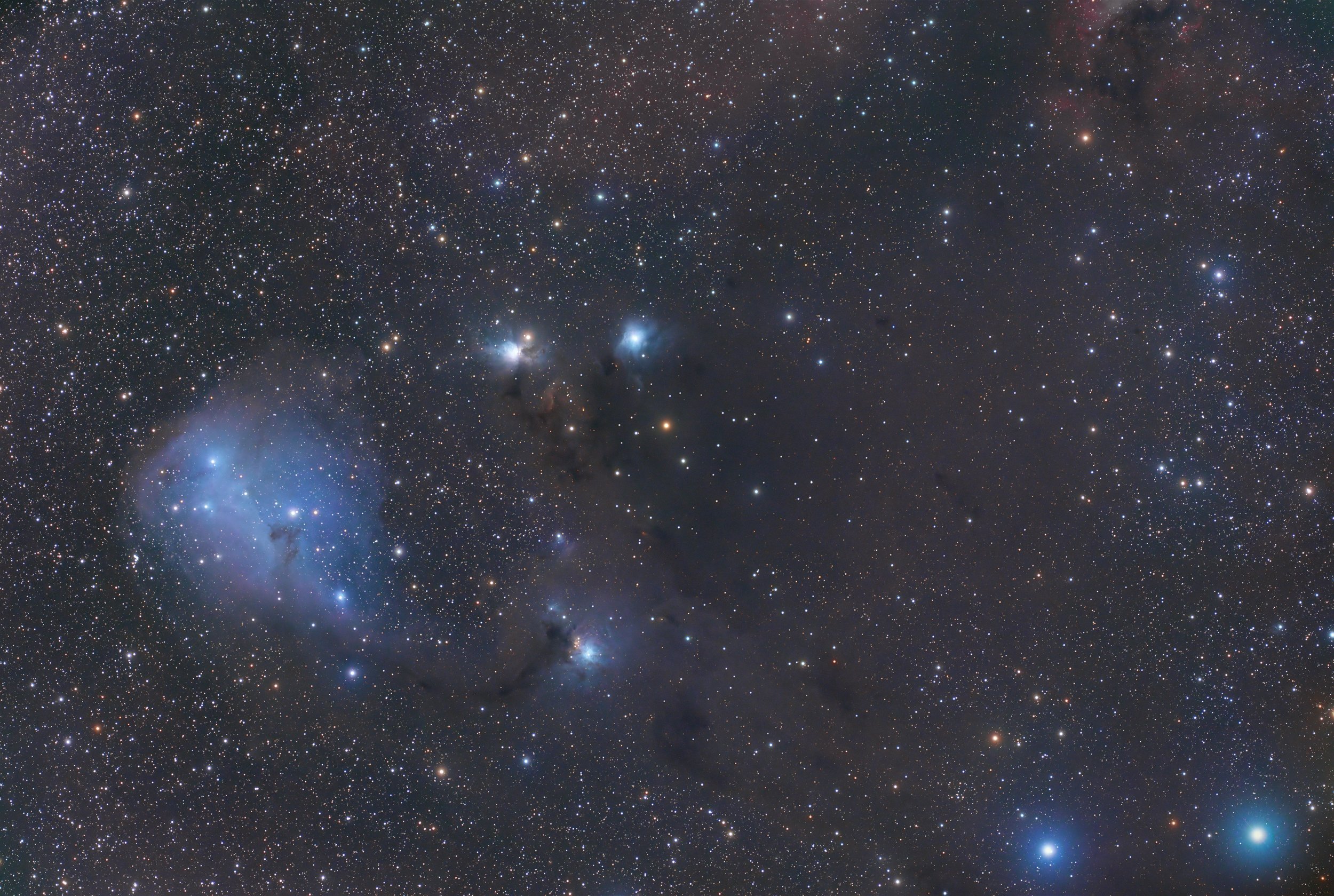
AAPOD2 Image Archives
IC 410: The Tadpole Nebula and Open Cluster NGC 1893
IC 410, known as the Tadpole Nebula, is a vibrant emission nebula located in the constellation Auriga, about 12,000 light-years away. At its core lies NGC 1893, an open cluster of young, massive stars whose intense radiation ionizes the surrounding hydrogen gas, causing the nebula to glow in shades of red and gold. This cluster, formed around 4 million years ago, powers the nebula and sculpts its intricate features.
A distinctive feature of IC 410 is the presence of two elongated tadpole-shaped structures, composed of dense gas and dust. These “tadpoles” are approximately 10 light-years long and point toward the cluster’s center. These regions are believed to be sites of ongoing star formation, where gravitational collapse may give rise to new stars. A lesser-known detail is that the tadpoles’ tails, shaped by the stellar winds of NGC 1893, align perfectly with the radiation pressure exerted by the cluster’s hot stars, offering a unique glimpse into the interplay between stellar winds and nebular material.
IC 417, IC 410 & IC 405. Three-panel mosaic in HaLRGB
This three-panel mosaic showcases the intriguing nebulae IC 417, IC 410, and IC 405, captured in HaLRGB. These emission nebulae are located in the constellation Auriga and present a stunning array of colors and structures.
IC 417, often referred to as the Spider Nebula, lies approximately 10,000 light-years from Earth. It features a cluster of young stars known as Stock 8, whose intense radiation ionizes the surrounding gas, creating the nebula's characteristic glow.
IC 410, also known as the Tadpoles Nebula, is located about 12,000 light-years away. It contains the open star cluster NGC 1893, which energizes the nebula. Notably, IC 410 includes two striking "tadpole" structures, which are dense regions of gas and dust being sculpted by stellar winds and radiation.
IC 405, the Flaming Star Nebula, is roughly 1,500 light-years from Earth. It is illuminated by the variable star AE Aurigae, which is believed to have been ejected from the Orion Nebula region millions of years ago. The interaction of AE Aurigae's intense light with the surrounding hydrogen gas creates a spectacular emission and reflection nebula, exhibiting striking red and blue hues.
Together, these nebulae form a vibrant tapestry of star formation and cosmic activity, offering a vivid glimpse into the dynamic processes shaping our galaxy.
Widefield Auriga
Image Description and Details :
This was shot over the course of 18 nights, spanning 4 months (winter skies in Nashville aren't the greatest). The Canon lens was @ f/4.
The real challenge with this photo came from the Spaghetti Nebula (aka SH2-240, Simeis 147). It's incredibly dim and barely shows up in a single 20 minute sub, which is in stark contrast to brightness of the Flaming Star Nebula (IC 405, SH 2-229, or Caldwell 31) and Tadpoles Nebula (IC 410, NGC 1893). I had to process this as HDR so that they appeared to have the same brightness.
Imaging lens: Canon EF 85 mm f/1.8 USM
Imaging cameras: ZWO ASI2600MC Pro
Mounts: Sky-Watcher EQ6R-PRO
Guiding telescopes or lenses: ZWO Mini Guide Scope
Guiding cameras: ZWO ASI290MM Mini
Software: Pleiades Astrophoto PixInisight · Photoshop CC
Filters: Optlong L-eXtreme 2" · Optolong L-eNhance 2"
Accessory: ZWO AsiAir Pro
Dates:
Dec. 10, 2020, Dec. 11, 2020, Dec. 13, 2020, Dec. 18, 2020, Dec. 21, 2020, Dec. 22, 2020, Jan. 6, 2021, Jan. 13, 2021, Jan. 14, 2021, Feb. 4, 2021, Feb. 8, 2021, March 4, 2021, March 5, 2021, March 7, 2021, March 8, 2021, March 9, 2021, March 10, 2021, March 11, 2021
Frames:
Optolong L-Pro 2'': 40x15" (gain: 100.00) -10C bin 1x1
Optolong L-Pro 2'': 40x30" (gain: 100.00) -10C bin 1x1
Optolong L-Pro 2'': 40x60" (gain: 100.00) -10C bin 1x1
Optolong L-eNhance 2": 143x1200" (gain: 100.00) -10C bin 1x1
Optolong L-eXtreme 2": 56x1200" (gain: 100.00) -10C bin 1x1
Integration: 67.5 hours
Darks: ~40
Bortle Dark-Sky Scale: 8.00
Copyright: Jeffrey Horne




